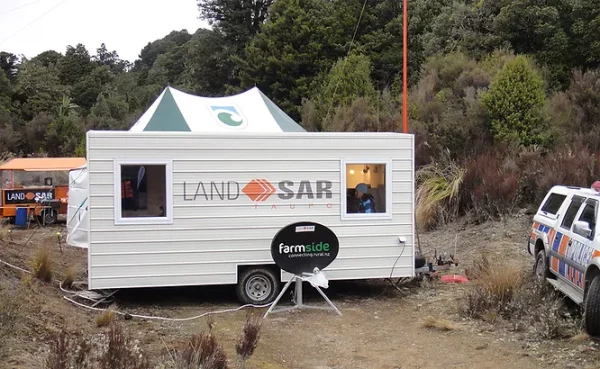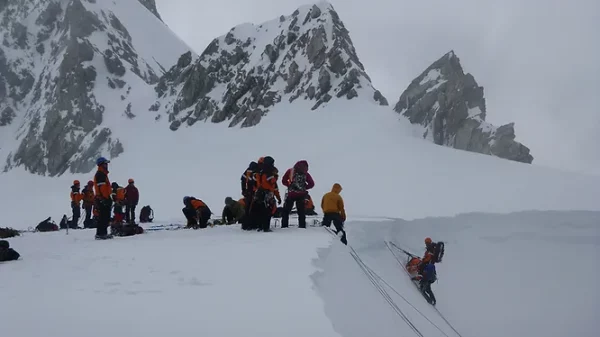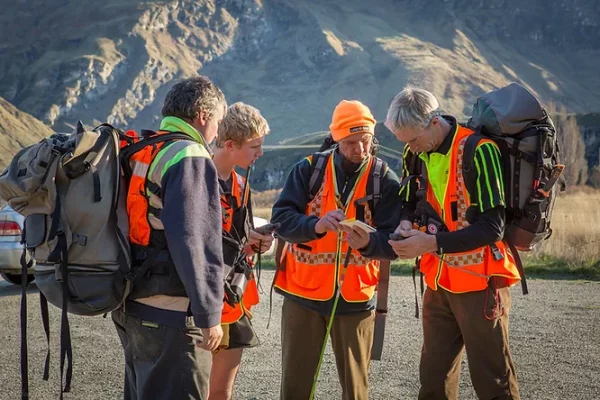 Communication is key in most situations, but in Land Search and Rescue New Zealand’s (LandSAR) case, it can be the difference between life and death.
Communication is key in most situations, but in Land Search and Rescue New Zealand’s (LandSAR) case, it can be the difference between life and death.
LandSAR is comprised of professionals in the community, who volunteer their time and specialist search and rescue skills to the public at any given time. Volunteers operate in a variety of terrain anywhere between urban and rural areas, to shorelines and caves.
Communication between field and search and rescue management teams is imperative during missions. Because of this, Farmside believed it was important to provide satellite technology for LandSAR during their search and rescue efforts.
Farmside Corporate Business Development Manager John Easton said when people go missing, it is often in remote locations beyond the range of conventional communication.
“Having a satellite connection allows LandSAR to set up their base of operations in the field close to where search activities will start and be co-ordinated from,” said Easton.
This meant that LandSAR were not tied to running operations from a single location, for example, from a police station, which may be many kilometres from a search area.
 “In addition to this flexibility in location, the bandwidth supplied allows teams on the ground to share information and search strategy in real time with others in the country,” Easton added.
“In addition to this flexibility in location, the bandwidth supplied allows teams on the ground to share information and search strategy in real time with others in the country,” Easton added.
“This means that search options and updates can be shared and peer reviewed as they come in from the field.”
LandSAR Group Support Manager, Mike Ambrose, said they usually provide for voice communication by having handheld radios, but these are not data capable.
“At a national level, search management is becoming more data hungry which requires an internet connection,” said Ambrose.
Internet connections are not easy to find in the back country, but without it, it is impossible to send data. As well as voice communication, GPS and other location data can speed up the process of finding people that were trapped in unforgiving locations, and where time became the enemy.
LandSAR development and fundraising manager Jon McQueen said that 23% of searches were for the elderly, or people with dementia, Alzheimer’s, or other cognitive disabilities. This further highlighted how important it was for teams to work efficiently and have the best resources to do so.

Photo credit: Jo Boyd
McQueen said that because LandSAR was a volunteer organisation, although they received partial funding from the government, most of their funding came from public support or through sponsorship that the likes of Farmside provides.
“With the Farmside sponsorship of satellite technology and equipment plus training, they help LandSAR continue to save lives and operate across the country.”
About LandSAR
Across New Zealand, there are 3,400 trained volunteers who are members of sixty different groups.
From July 2018 to June 2019, volunteers donated over 24,141 hours of their time towards saving, rescuing and assisting almost 322 people in urban and rural areas.
To ensure that LandSAR can continue doing their important work, you can donate here.